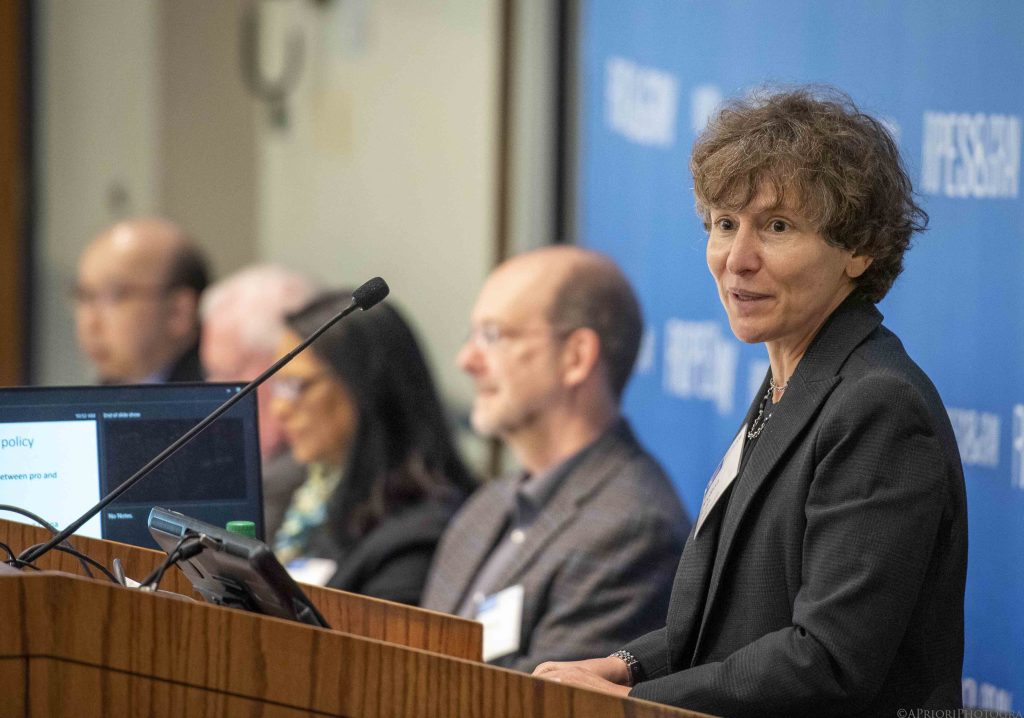On October 13, faculty, students, and practicing attorneys from around the world packed East Wing 120 for the Fifth Annual International IP Summit. The event, hosted by Boston College Law School’s Program on Innovation & Entrepreneurship (PIE) in partnership with Ropes & Gray, brought together a cadre of businesspeople, government officials, and academics to discuss everything from the war in Ukraine to fintech regulation and beyond.
The theme of this year’s summit was uncertainty, an apropos choice given the current state of intellectual property; speakers frequently referenced the COVID pandemic, swiftly changing geopolitical tides, and unpredictable technological developments, all of which pose challenges to legal practitioners in the field.
Interim Dean Diane Ring kicked off the day-long gathering by sharing some of the reasons behind the summit’s development: “Innovation can bring people together and divide them. Powerful companies and platforms raise issues of political power, speech, and fairness. New technologies can raise ethical concerns, and the economic gains from innovation may not be equally shared,” she said. “The proper tailoring of IP law is an important part of shaping the society and the world in which we want to live.”
The keynote address was delivered by Lynnette Fallon, executive vice president and general counsel to Axcelis Technologies. Axcelis is on the leading edge of semiconductor fabrication and manufacture. The tiny transistors have seen much ado in the news of late with the passage of the CHIPS Act earlier this year, which saw roughly $280 billion injected into the industry to boost research and manufacturing. It is the latest proxy competition between the United States and China, as the two countries continue to challenge each other economically and technologically.
Fallon described the industry as “one of the most difficult and challenging in the world,” owing to the fact that it “constantly changes every year.” As microchips get smaller and more complex, the demand on companies like Axcelis grows exponentially. To date, they’ve filed somewhere in the realm of 800 patents, both domestically and abroad.
She highlighted the importance of the funding that the CHIPS Act will provide, but noted how it comes at a moment when the US is being left behind by competitors like China, saying, “We also are in a country, unfortunately, in my view, that’s never recognized the critical importance of the industry. I think there’s always been this impression that the tech industry is just rolling in money, and the government shouldn’t be supporting them.” Nevertheless, Fallon is optimistic that American fabricators can rise to the challenge and meet the growing demand with force.
The summit’s panels ran the gamut of subjects, from emerging global trends in IP to the challenges seen by general counsel from five Boston area companies.
Summit co-organizer Ed Kelly ’93 of Boston & Galway, an expert on US and European patent law, moderated a panel on the European Union’s Unified Patent Court and the EU Unified Patent. Panelists from Germany, France, and the US discussed how these new additions to the EU patent regime will pose a serious challenge to US dominance in patent filings and patent litigation. The panelists agreed that once these new systems come online, companies will be able to file one patent application in the EU, and once that patent issues, enforce the patent in one court in the EU to get protection throughout Europe.
In another session, panelists debated whether IP protections have gone too far. Professor Peter Yu of Texas A&M University School of Law outlined the arguments for waivers of patents for some drugs to make sure that people around the world can get needed vaccines. Anita Varma of White & Case LLP pointed out the enormous R&D costs to drug development and the need to have adequate incentives to develop vaccines for the next deadly virus.
For his part, Boston University Professor Michael Meurer argued that patents are too strong and that more burden should be put on patent applicants to effectively narrow their patent rights. While agreeing that reforms are needed to the patent grant process, Molly Sifen, counsel in US Senator Patrick Leahy’s office, also spoke of legislation that Sen. Leahy has sponsored to make it cheaper for small inventors to get patents.
Weighing in on the role of courts, Judge William G. Young said that one of the most important things they can do to improve the patent ecosystem is to speed up the trying of cases, and that using Zoom for all matters not requiring a jury is one way to do so. He also suggested that courts could bifurcate patent trials to determine validity first, and only thereafter try infringement. Judge Young argued that this will help a jury to decide infringement with better knowledge of the collateral technology and thus what is unique about the patented invention.
A standout afternoon panel was “Evolution of FinTech: Are Regulation and Law Keeping Up?” Moderated by Professor David Olson, faculty director of PIE, the panelists discussed how banks and other financial institutions are dealing with the contemporary sea change in how money travels in the age of the blockchain. There were the obligatory jokes about Bored Ape NFTs, but also deep and nuanced conversation about cryptocurrency custody and regulation.
The panel featured Robert Bench, assistant VP of secure payments and fintech at the Federal Reserve Bank of Boston; Melissa Bender, partner at Ropes & Gray; Justin McCormack, SVP and senior managing counsel at State Street Corporation; and Regina Sam Penti, partner at Ropes & Gray.
McCormack waded into the debate over whether crypto should be considered a commodity or a security, and Bender went so far as to suggest that “what we are really seeing is the creation of an entirely new type of asset class and experience through the development of NFTs,” an asset that won’t necessarily fit squarely in any of the pre-existing categories.
Videos of the event are available here.
Photographs: ©APrioriPhotography.com
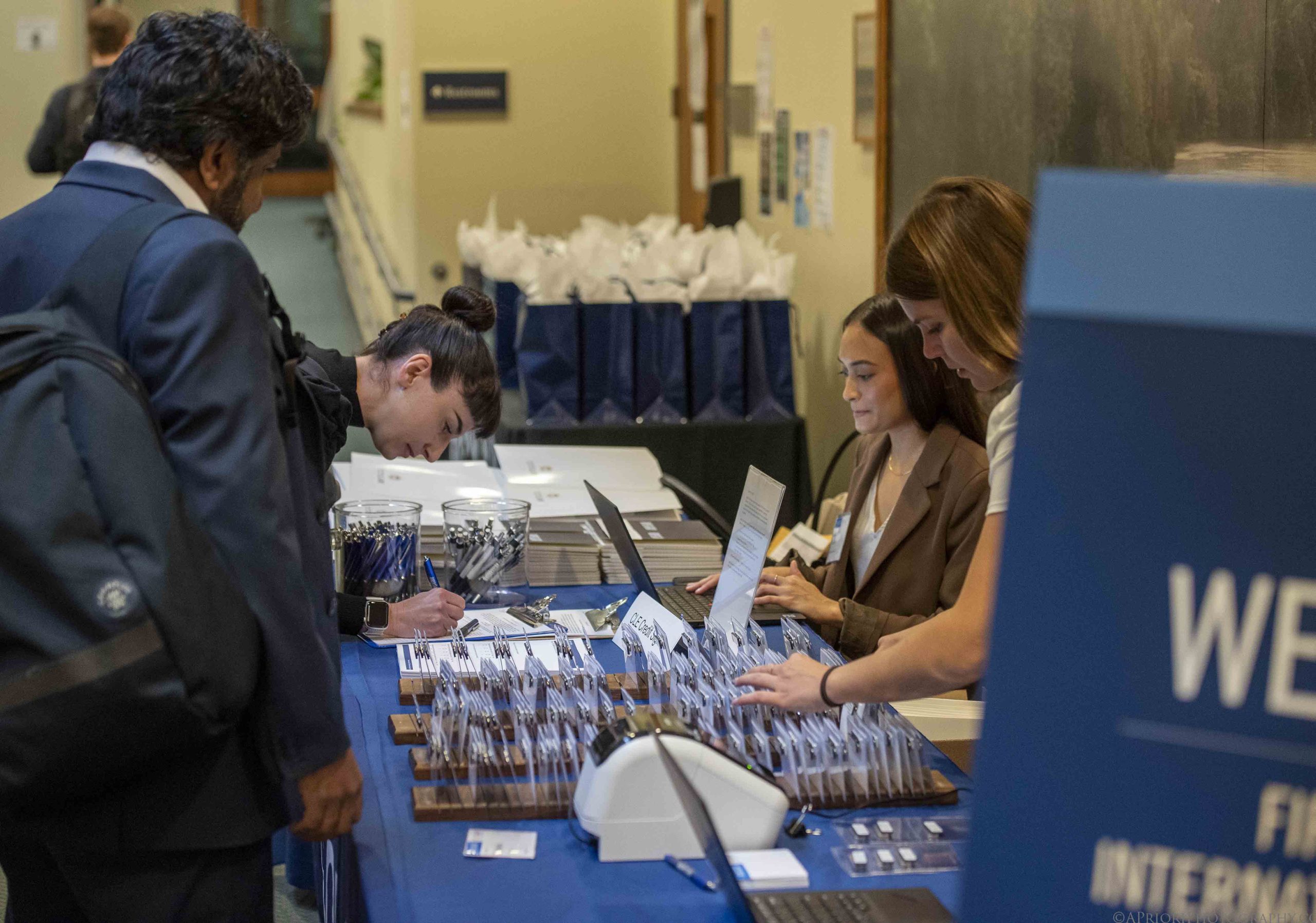
Check-in at the IP Summit. 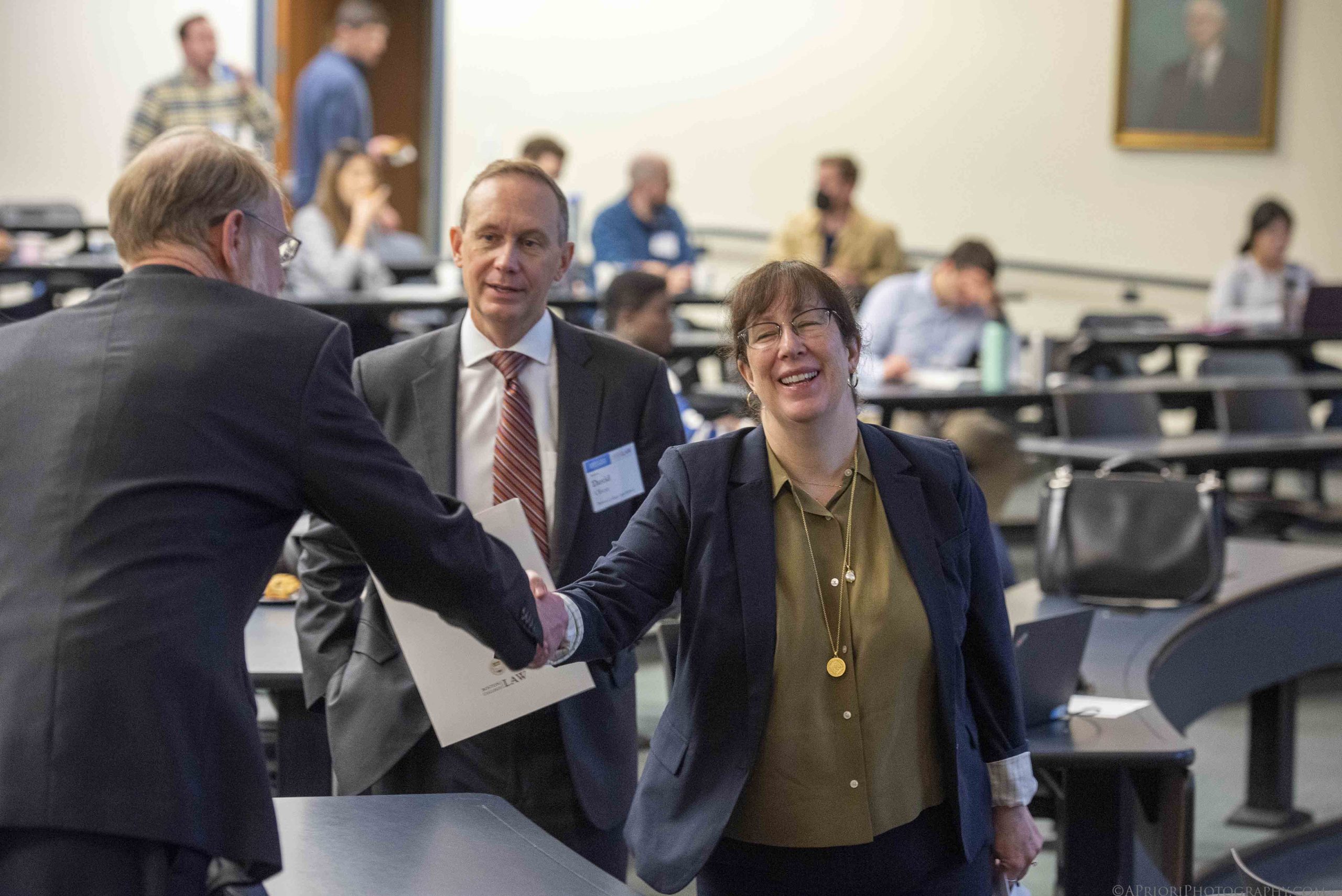
Interim Dean Diane Ring and PIE faculty director David Olson greet summit co-organizer Ed Kelly ’93. 
Panelist Peter Yu from Texas A&M. 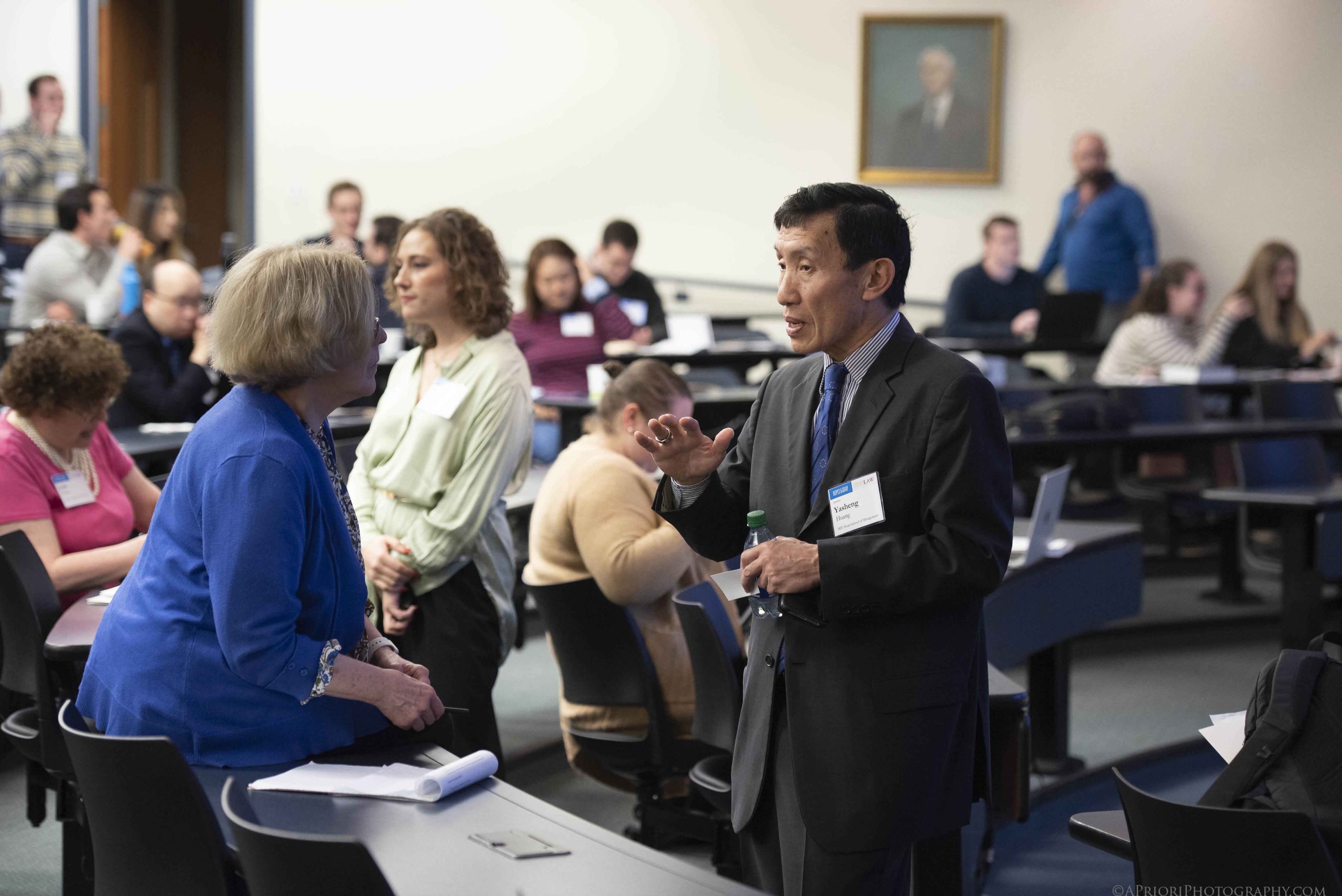
MIT’s Yasheng Huang speaks with BC Law Professor Judy McMorrow. 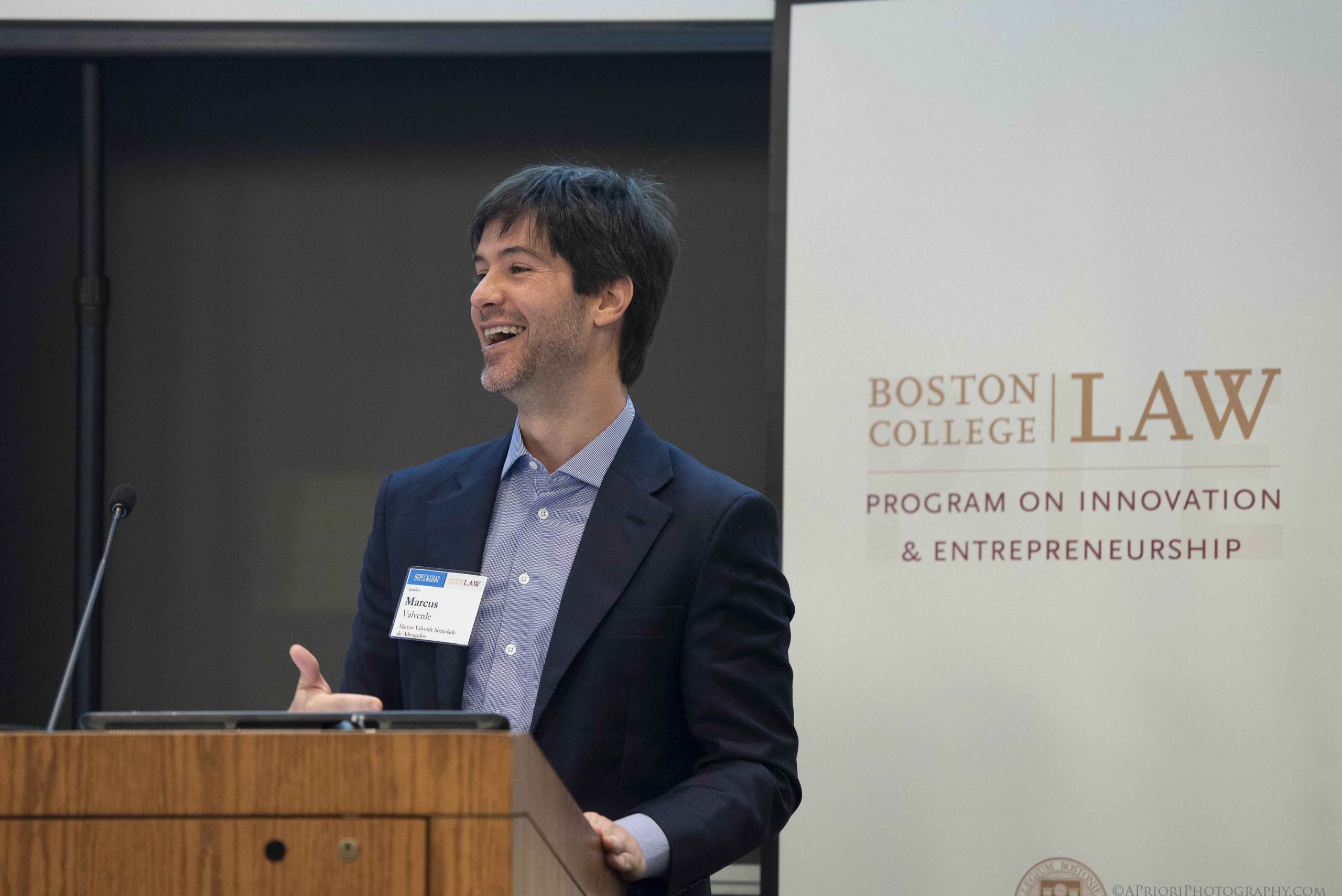
Marcus Valverde of Marcus Valverde Sociedade de Advogados spoke about global tech trends. 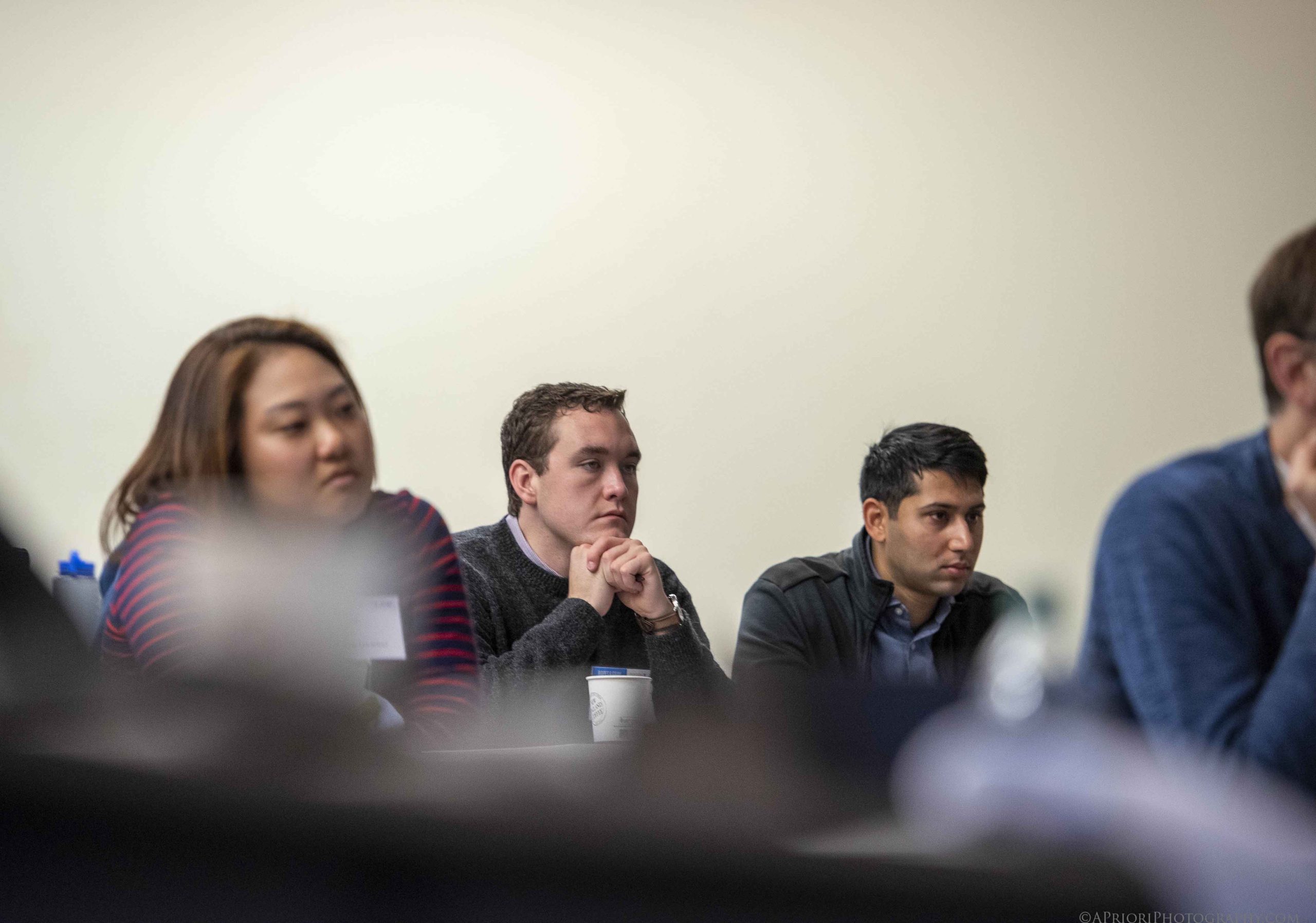
The audience included BC Law students. 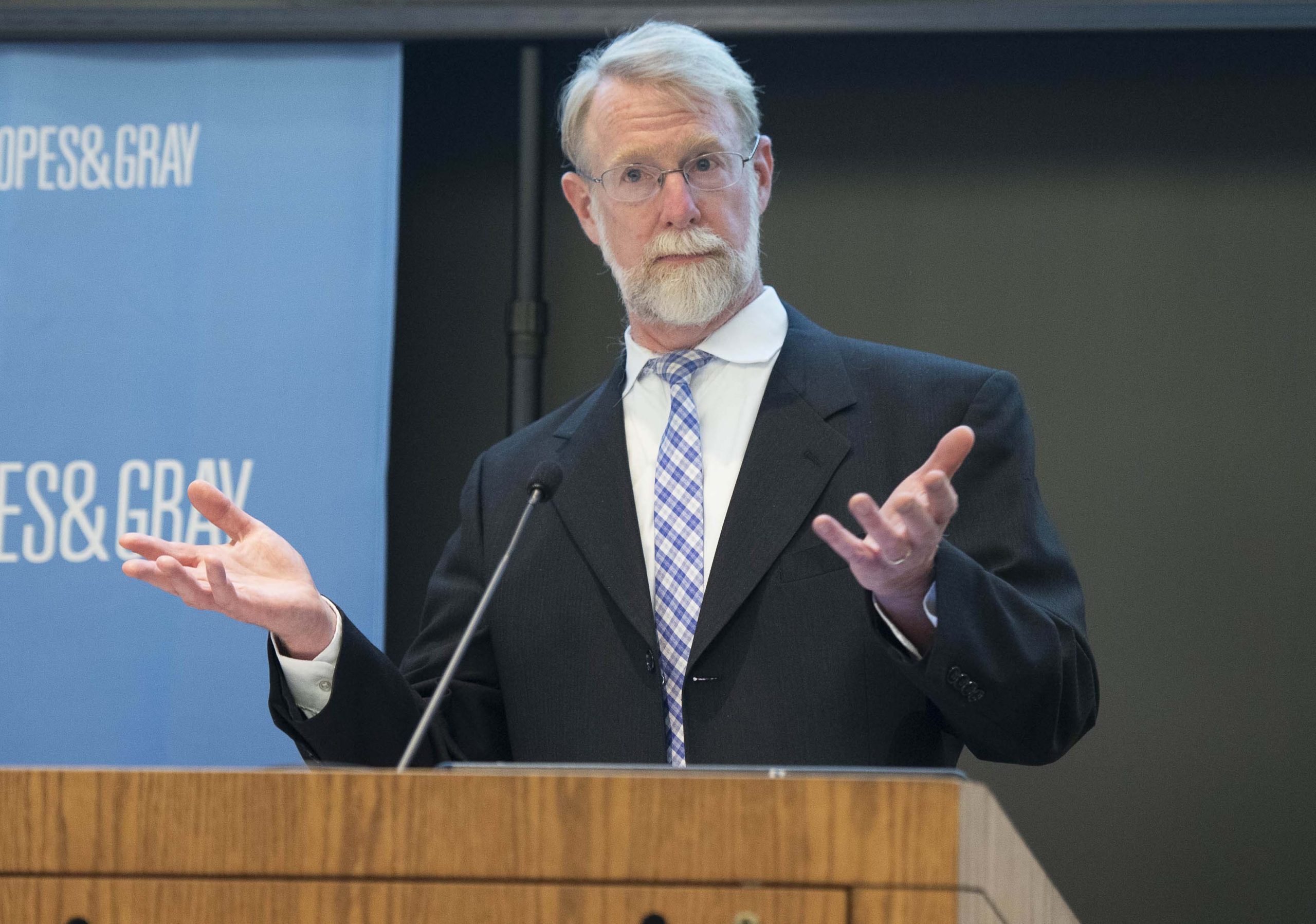
Ed Kelly ’93 of Boston Gallway moderated the panel on the EU’s Unified Patent Court. 
The summit proved ideal for networking. 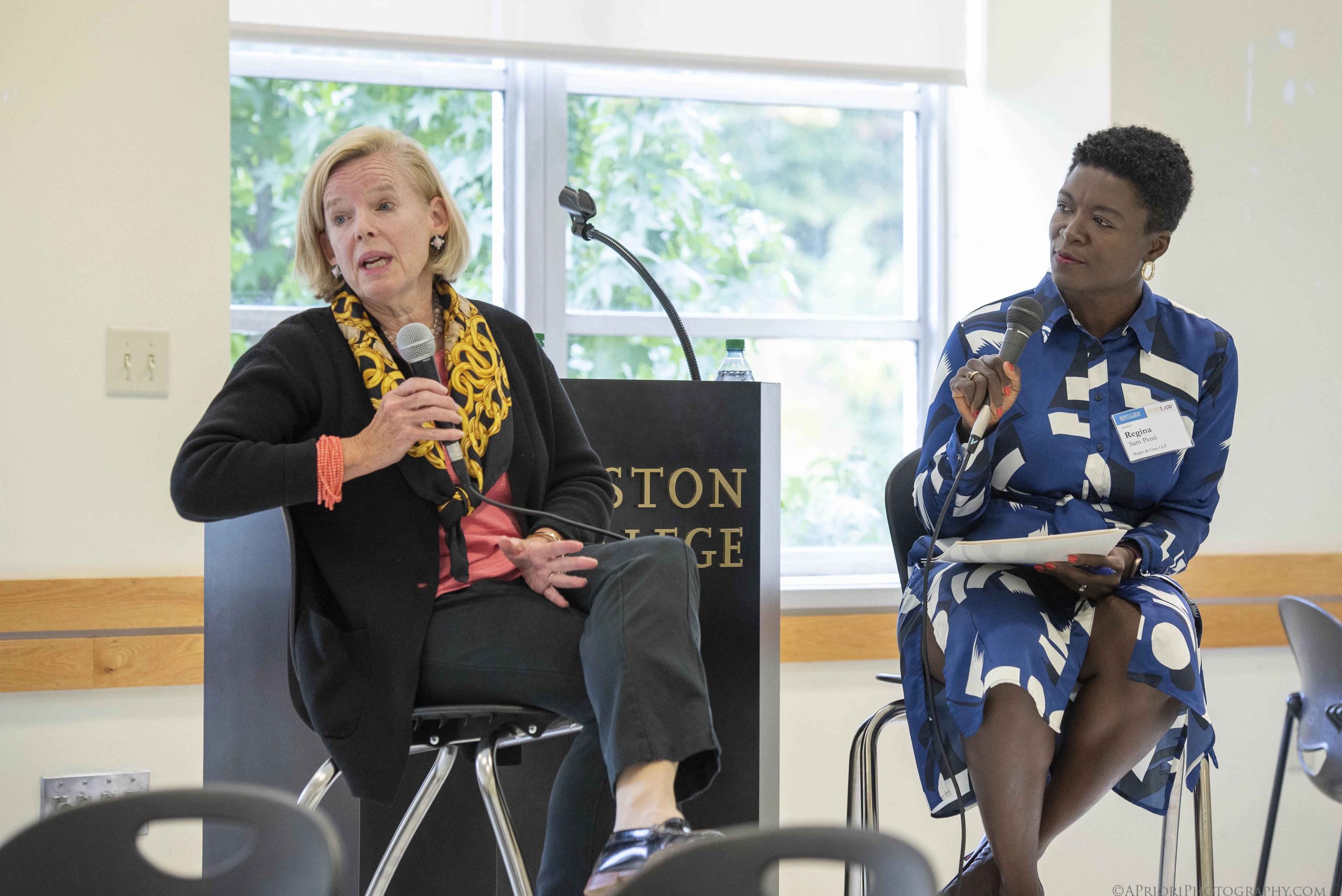
Keynote speaker Lynnette C. Fallon of Axcelis Technologies (left) with Ropes & Gray panelist Regina Sam Penti. 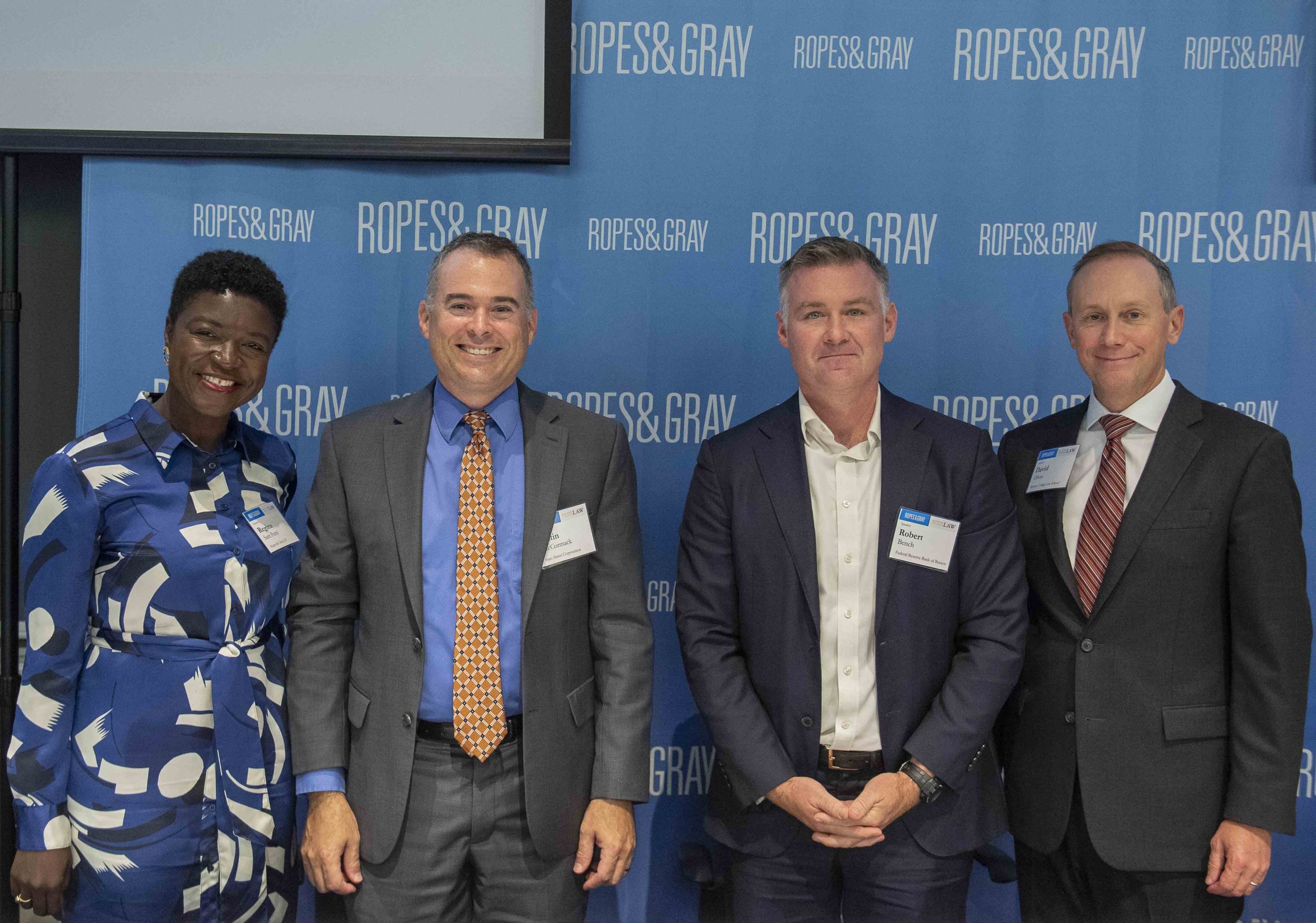
Regina Sam Penti, Justin McCormack, Robert Bench, and BC Law Professor David Olson were part of a panel on fintech. 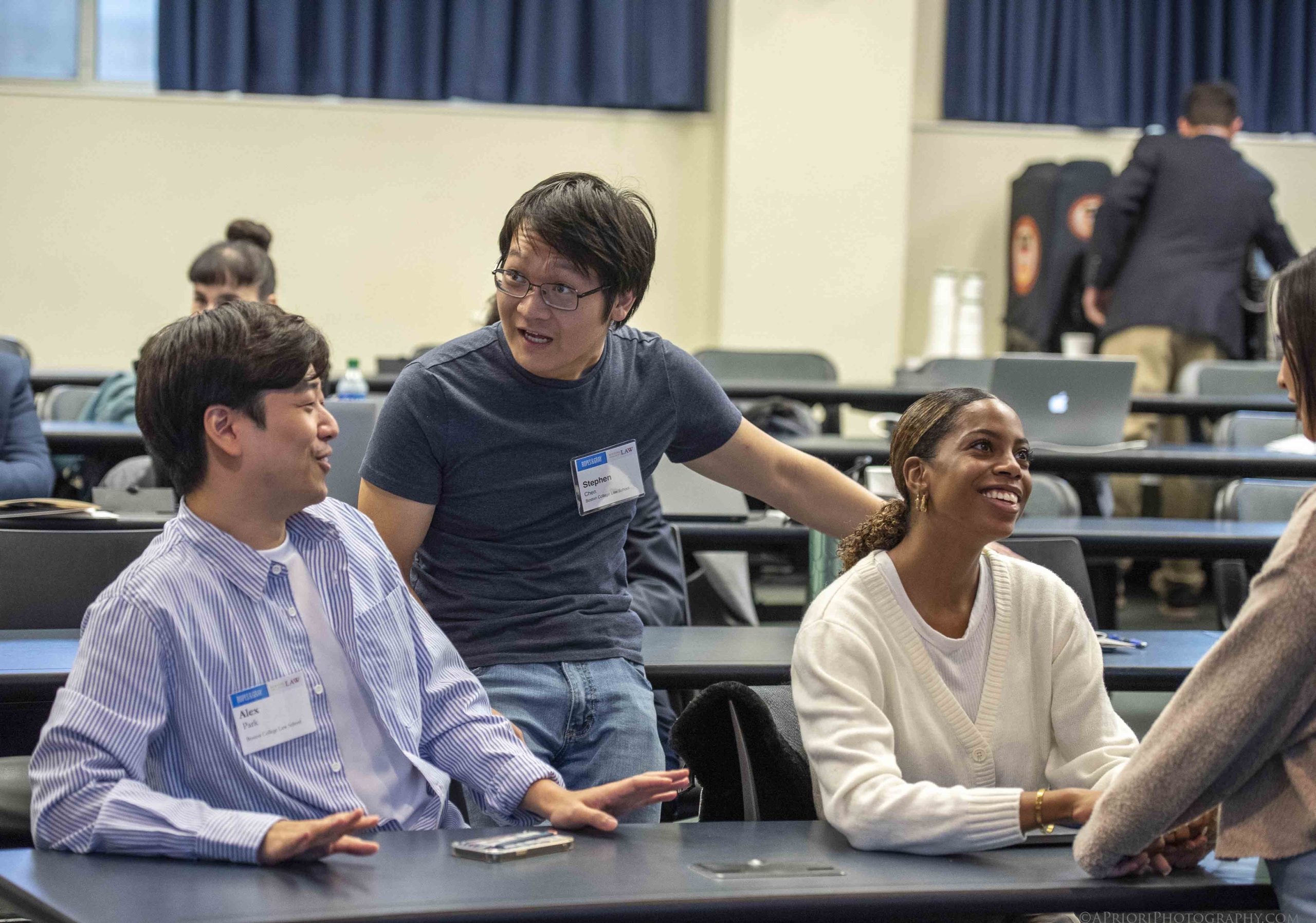
BC Law students. 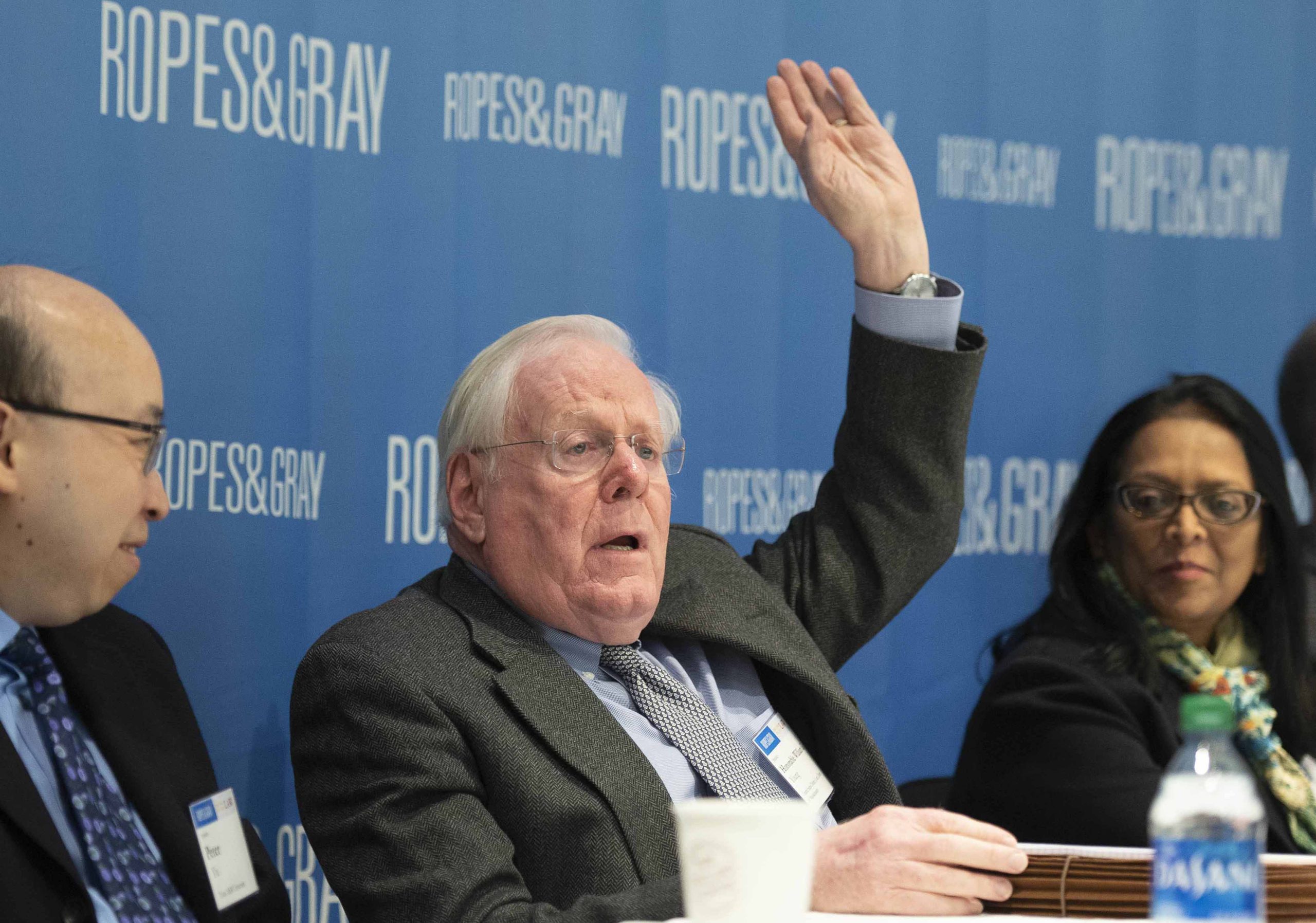
From left, Peter Yu, Hon. William G. Young, and Anita Varma spoke on IP protections. 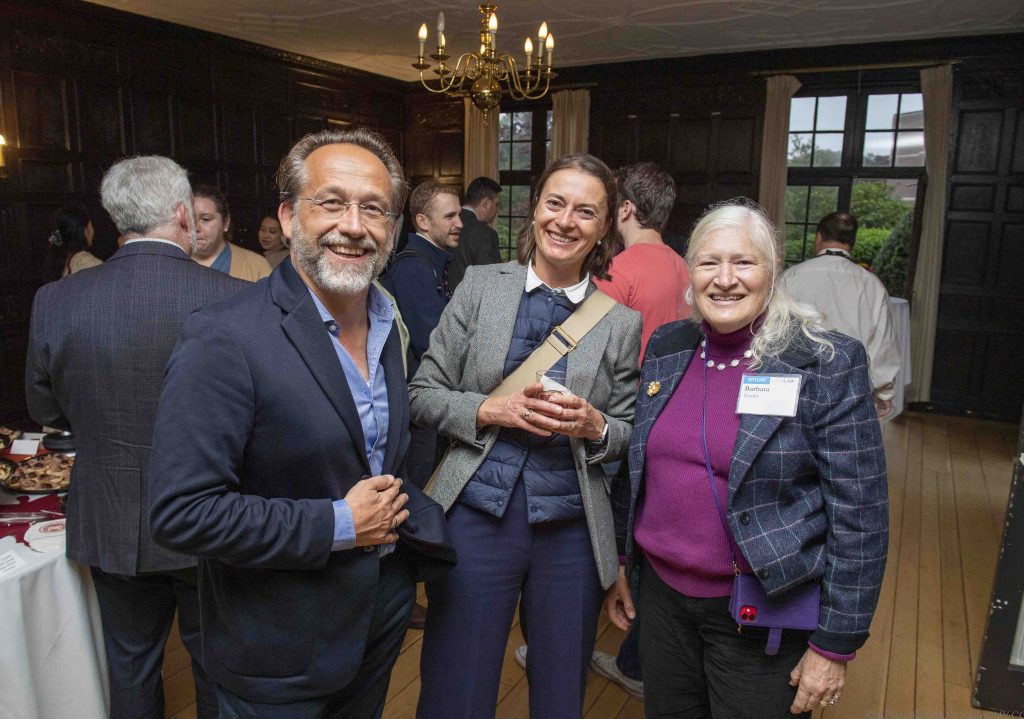
Mathias Karlhuber, Sabine Age, and Barbara Foster at the reception.


